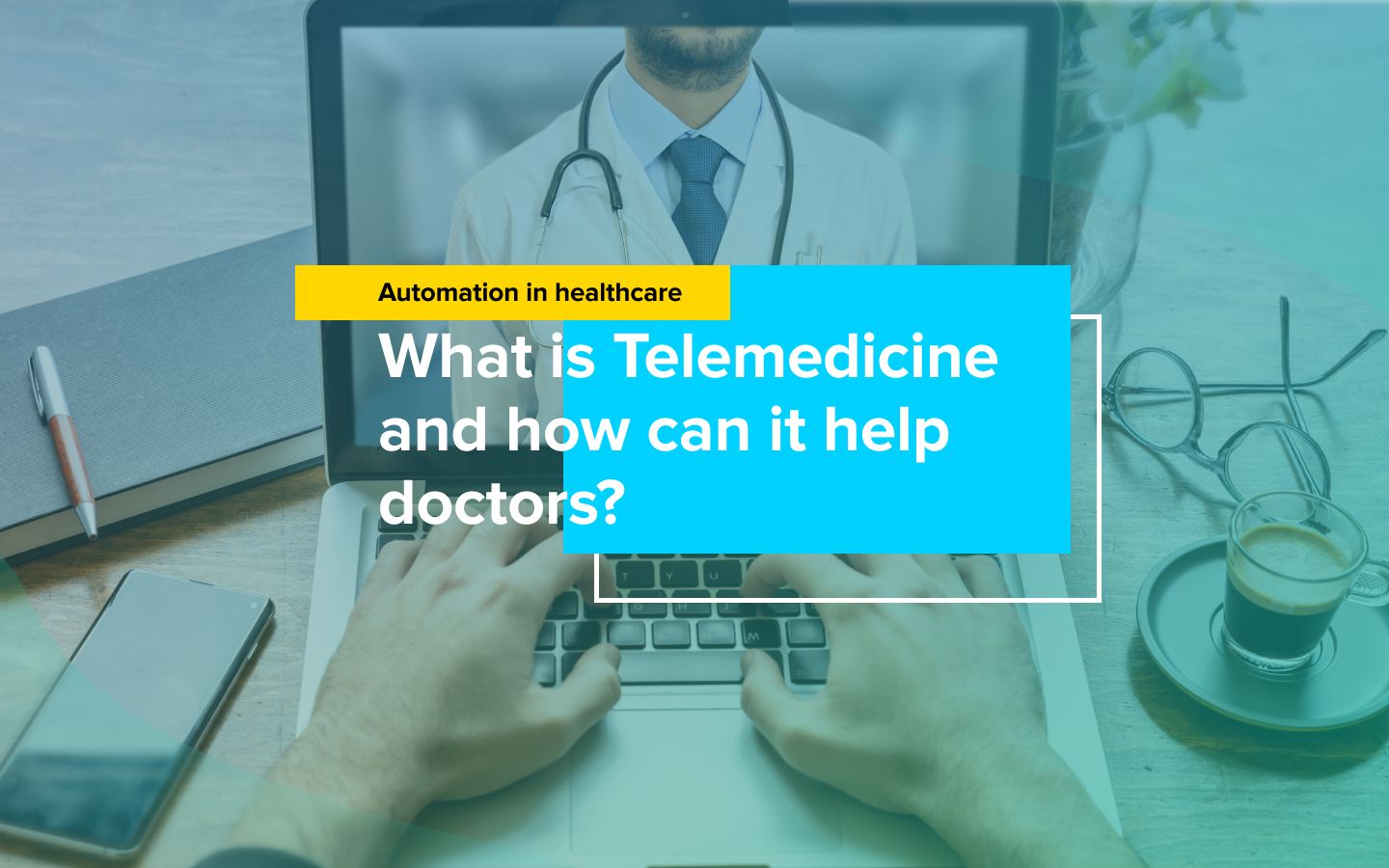With the digital revolution, every industry has kept pace with adopting and enabling new features for all their stakeholders. The healthcare industry has not just used technologically advanced medical equipment but has instead incorporated digital mediums into almost every activity, from hospital administrative tasks to electronic medical records.
According to Medscape’s National Physician Burnout and Suicide Report 2020, 55% physicians in the US reported the major cause of burnout and emotional fatigue to be too many bureaucratic tasks. To avoid overburdening doctors with administrative activities, it has become essential to incorporate automation into existing workflows.
What is telemedicine?
Telemedicine involves the use of electronic communications and software to provide clinical services to patients without an in-person visit. Telemedicine allows health care professionals to evaluate, diagnose and treat patients at a distance using telecommunications technology.
Medical organizations have started incorporating online booking of doctors’ appointments as well as digital consultation sessions to move beyond geographical boundaries. The need to streamline the process of booking doctors’ appointments has been understood to avoid overburdening administrative tasks in hospitals. Telemedicine provides features in a manner that allows patients greater access to doctors from various specialities as well as provides efficient scheduling of appointments to doctors.
Are online medical appointments necessary?
Online appointment booking has become a part of almost every hospital in tier 1 and tier 2 cities. It addresses some of the most common issues for in person medical appointments faced by doctors involving their calendars being disarrayed due to cases in which patients do not turn up for appointments or come late and cause all subsequent appointments to be delayed. Additionally, due to the numerous platforms available for booking an appointment with a doctor, there could be a mismatch resulting in multiple appointments at the same time.
Google Calendar is one of the most popular calendars available for scheduling appointments. It lets you organize your schedule and share events with either Google Meet or any other video conferencing applications. Quickwork provides a wide range of integrations possible with Google Calendar here.
What common healthcare issues can telemedicine automation address?
- Most patients seek doctors in their local areas of residence and as a result cannot obtain treatments from specialist doctors who practice in other areas.
- Healthcare consultations for long term ailments require patients to follow up with doctors repeatedly over a period of time, ranging from a few months to a few years. They also need to communicate readings from various diagnostic tests and machines to their doctors.
- Patients should be able to find doctors as per their specific requirements. This is challenging when specialist doctors are spread across various hospitals. Along with finding suitable doctors, patients should be able to access preliminary details such as specializations, consultation charges and availability hours.
How can telemedicine address these concerns?
- Telemedicine can address this by incorporating an online appointment system where appointments are conducted via video conferencing on any preferred video conferencing app such as Google Meet, Zoom, Skype among many others.
- Using an integrated appointment system helps to sync all appointments for a doctor with their calendar. Hence, within the doctor’s available hours, all online and offline appointments will be visible and managed.
- To enable patients to find doctors for their specific needs, an NLP based chatbot can be implemented with which patients can interact to find doctors as well as see preliminary details such as specializations, consultation charges and availability hours.
- To have a systematic process in place for follow up appointments, the hospital can choose a messaging platform of their choice, to interact with patients. The administrative staff can provide a link to patients via WhatsApp/Facebook Messenger/SMS through which patients can book their next appointments. They can also set a reminder notification for patients to schedule their appointments in a timely manner.
About Quickwork
Quickwork provides numerous easy to implement integrations of messaging apps, calendar apps, video conferencing apps and Quickwork Conversations. These solutions can provide a holistic package to healthcare organizations, enabling them to save time and energy spent in organizing schedules and allows them to focus on other more important activities. Get in touch with Quickwork to know more about how you can streamline your business workflows!








